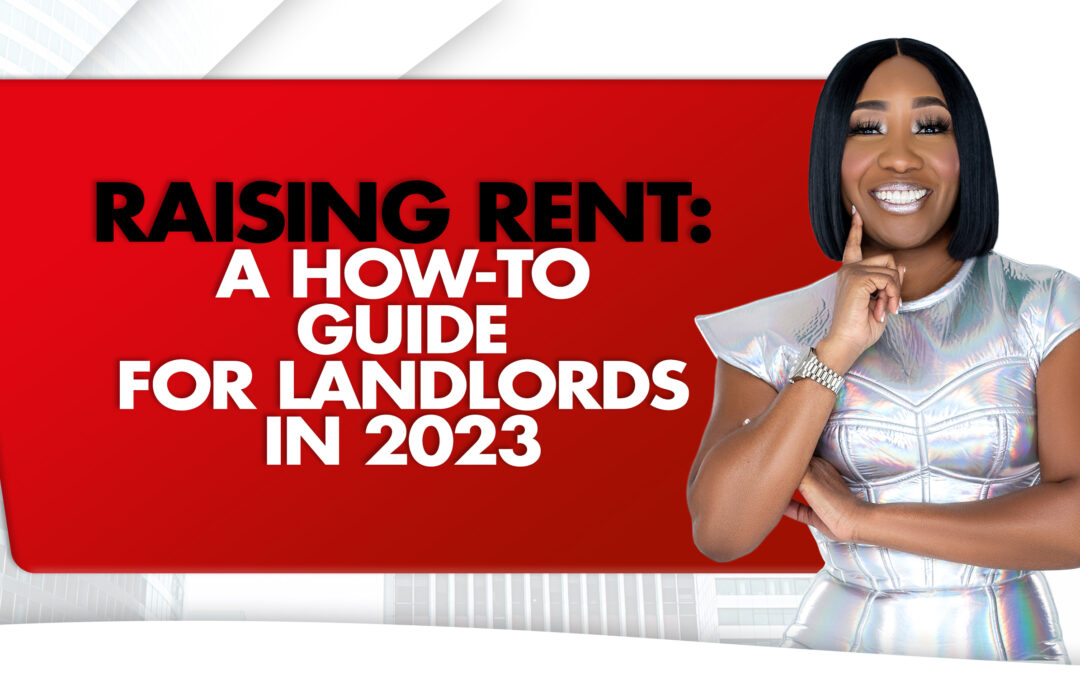If you own a landlording or rental property business, one of the topics you’ve probably thought about a lot—especially in today’s inflated market—is raising rent.
Landlords frequently wrestle with whether or not to implement a rent increase. With the rising costs of building materials, higher insurance premiums, taxes, and utility bills, choosing not to increase rent could cause your profits to dwindle. Not to mention that if the rental market in your area is on the up-and-up, you might not be getting the most money for your property.
Wanting to make an even bigger splash as an entrepreneur? Register today for my exclusive, FREE Masterclass online training, ‘Teach Me The Digital Products Game,’ where I share all the secrets and insights that made me a multi-millionaire.
Making The Case To Raise Rent
78% of renters experienced a rent increase in 2019, according to the Zillow Group Consumer Housing Trends Report, and 55% claim that the increase directly influenced their decision to move.
You, as the landlord, have the option of raising the rent if:
- Rates on the market have gone up.
- There are costs associated with property upkeep that must be covered.
- The property taxes have gone up.
- Insurance rates have gone up.
- Fees for condos and homeowners’ associations have gone up.
Can A Landlord Raise Rent?
The short answer, yes. A landlord may be able to raise rent before renewing the lease, depending on local laws. A lease agreement specifies a predetermined rent amount for a predetermined amount of time, such as six months or one year. Even if the property changes hands, the rent typically won’t go up or down during that time.
Depending on state and local laws, tenants in the Housing Choice Voucher Program—also known as Section 8—can typically only have their rent increased once per year. The Fair Market Rent standards that the HUD sets each year can be used to determine whether or not a rent increase is necessary. A copy of the written notice of the rent increase is typically sent to the public housing authority in the area for approval. Before raising rent for anyone who is using a Housing Choice Voucher, always consult a local attorney.
When Should Landlords Consider Raising Rent?
While it’s essential to manage a profitable investment property by maintaining a competitive rental price, there are times when a landlord cannot raise the rent.
For instance, if the following conditions exist:
- During the lease’s term, you attempt to raise rent.
- Rent increases are not permitted by the lease.
- The notice of the upcoming rent increase was not properly distributed.
- Rent is restricted on the property.
- The increase could be seen as retaliation against a tenant, or it could be.
- The Fair Housing Act says that the increase is discrimination against a tenant.
- You are attempting to compel a tenant to vacate.
- You try to raise the rent more than the local law allows.
How Much Can the Landlord Increase the Rent?
The amount that a landlord can raise rent depends on where you live. If you increase your tenant’s rent by more than a certain amount, some cities may require you to cover their relocation expenses.
In 2022, rent increases were up by as much as 40%, depending on the location of the property. The national average was approximately 14%.
How To Increase Rent
According to the Zillow Group Report, 66% of renters make at least one financial sacrifice to pay rent. Tenant income could rise faster than rent increases if percentages were any higher.
Consider the following when raising a tenant’s rent to prevent them from leaving:
- When you’re raising the rent, let people know.
- Describe how your new rent rate is competitive with others in the area.
- Consistently implement reasonable rent increases (such as 2% or 3% annually).
- Give a lot of notice.
How Much Notice Must Tenants Receive From Landlords?
Before a tenant’s lease ends or is up for renewal, a landlord must typically give them written notice at least 30 days in advance. However, the amount of notice that must be given varies by state, city, or town. To ensure that you are adhering to the rent increase notice requirements of your city or state, consult a local attorney.
Being The Best Landlord For Your Tenants
Landlording isn’t for the faint at heart, but if you do it right, you’ll be able to make money while also keeping quality tenants happy. If you’ve been toying with the idea of raising rent, doing your research, and speaking with a rental property expert will help you make the best decision for both parties.
Do you have what it takes to be a successful landlord? Get a head start by signing up for my exclusive online training, ‘Learn The Hardcore Facts About Landlording,” where I teach you everything you need to know in order to dominate the rental property business.
…And, looking for even MORE ways to generate wealth? Don’t forget to secure your spot for my FREE online training course, ‘Teach Me The Digital Products Game‘ and learn the simplest, most cost-effective ways to grow your business this year!

Recent Comments